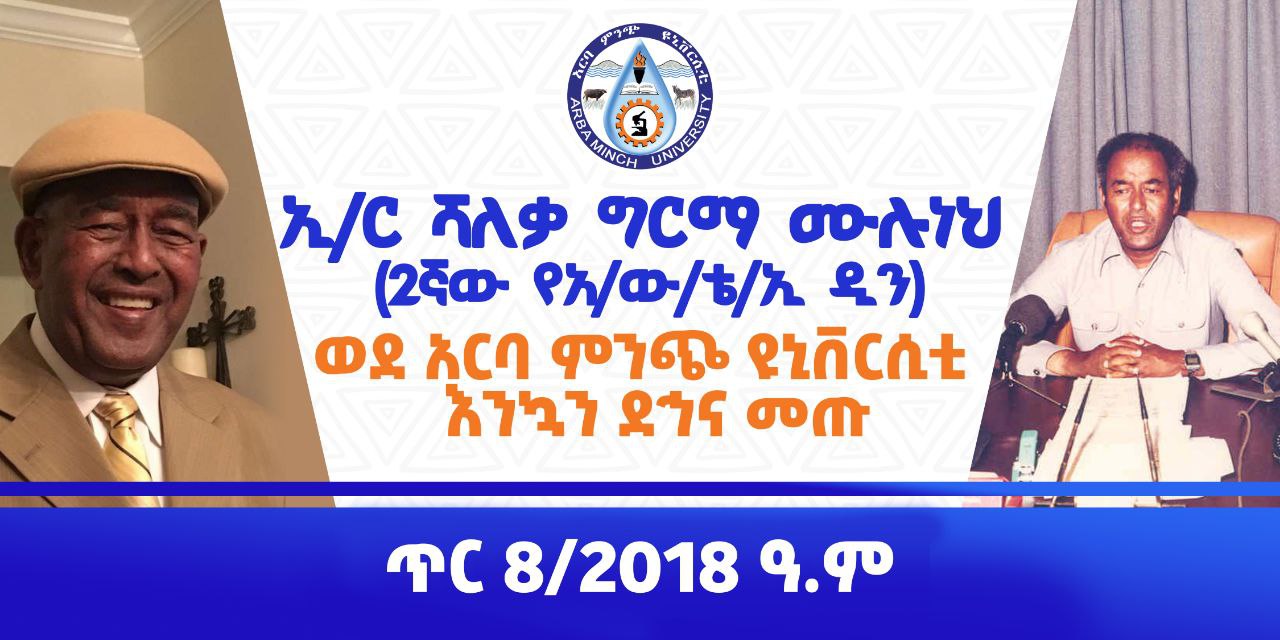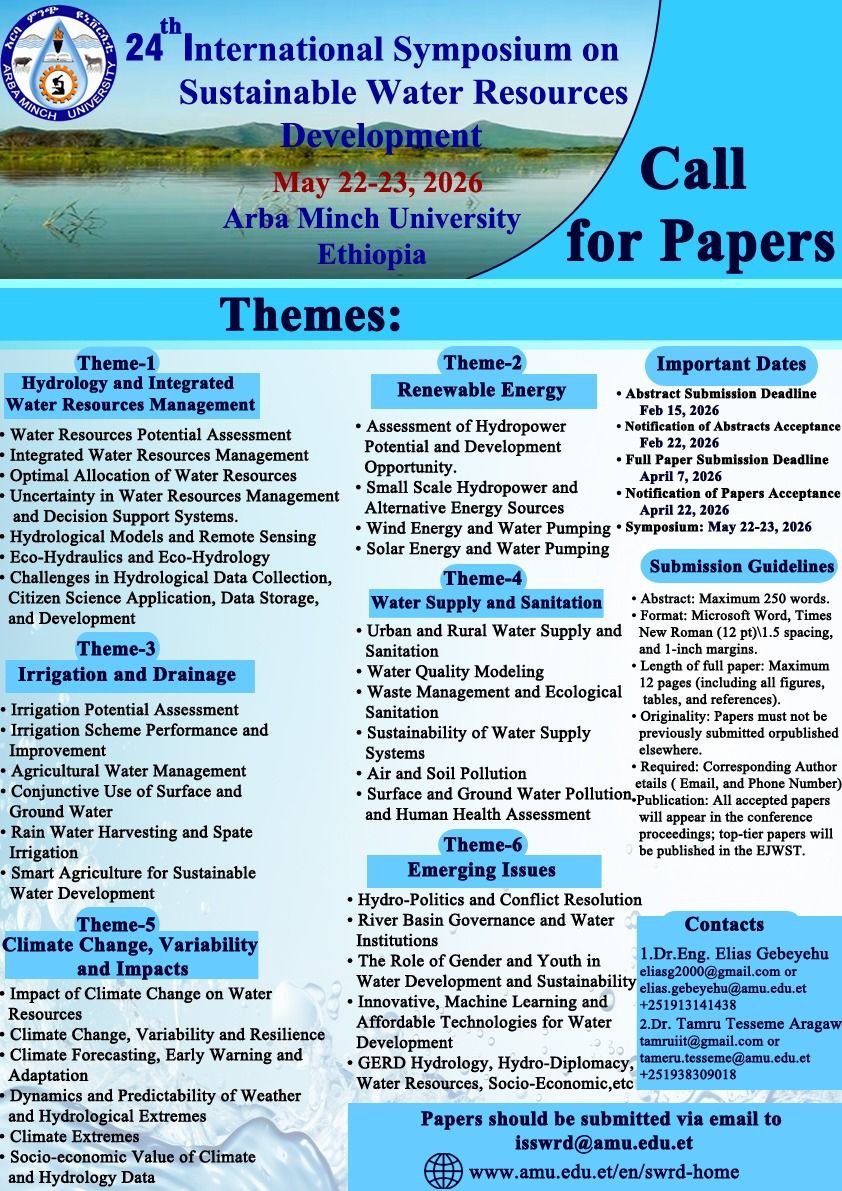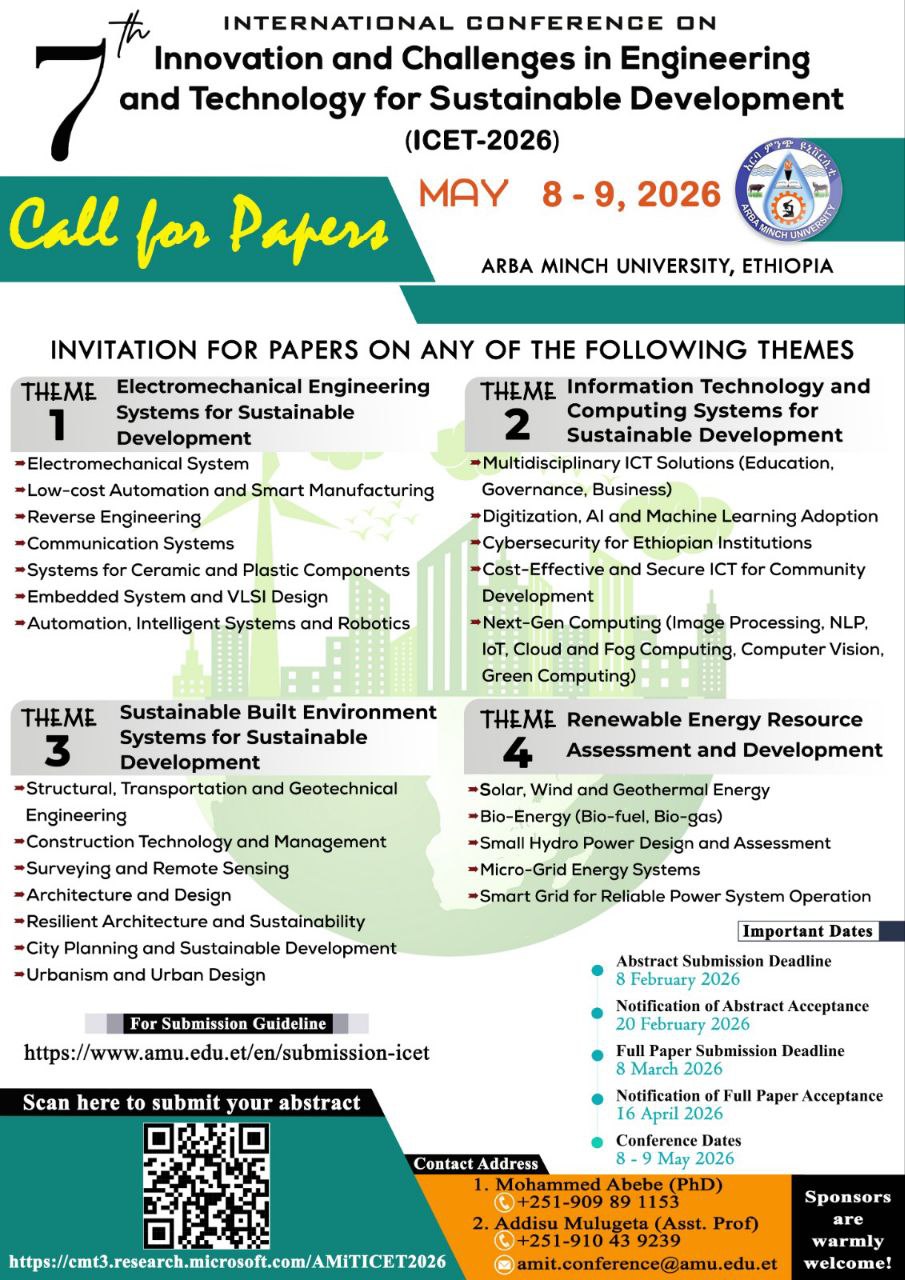- Details
AMU has observed 14th ‘International Museum Day’ with fanfare at Main Campus on 16th May, 2016. Museum enthusiasts, professionals, academicians and others attended the inaugural event followed by group paying visit to cultural hot-spots like Hamar, Jinka and Konso. Click here to see the pictures.
Read more: Arba Minch University hosts ‘International Museum Day’ function
- Details
የግንቦት 20 ድል 25ኛ ዓመት የብር ኢዮቤልዩ በዓል ግንቦት 18/08 ዓ/ም በዩኒቨርሲቲው በተለያዩ ዝግጅቶች በድምቀት ተከብሮ ውሏል፡፡ ምስሎቹን ለማየት እዚህ ይጫኑ፡፡
Read more: ‹‹የማሽቆልቆል ምዕራፍ ተዘግቶ የእድገት ምዕራፍ የተከፈተበት የሩብ ምዕተ ዓመት የትግልና የድል ጉዞ››






